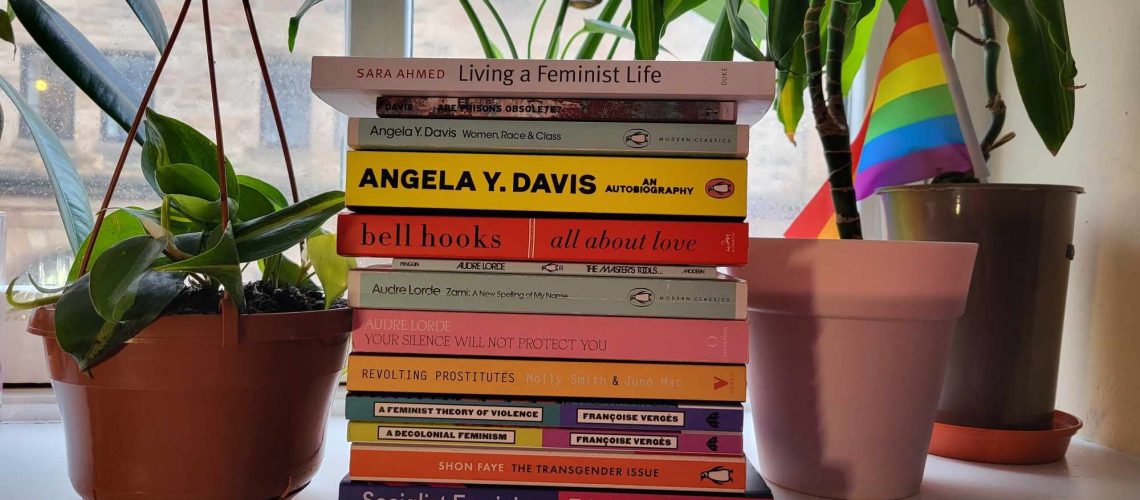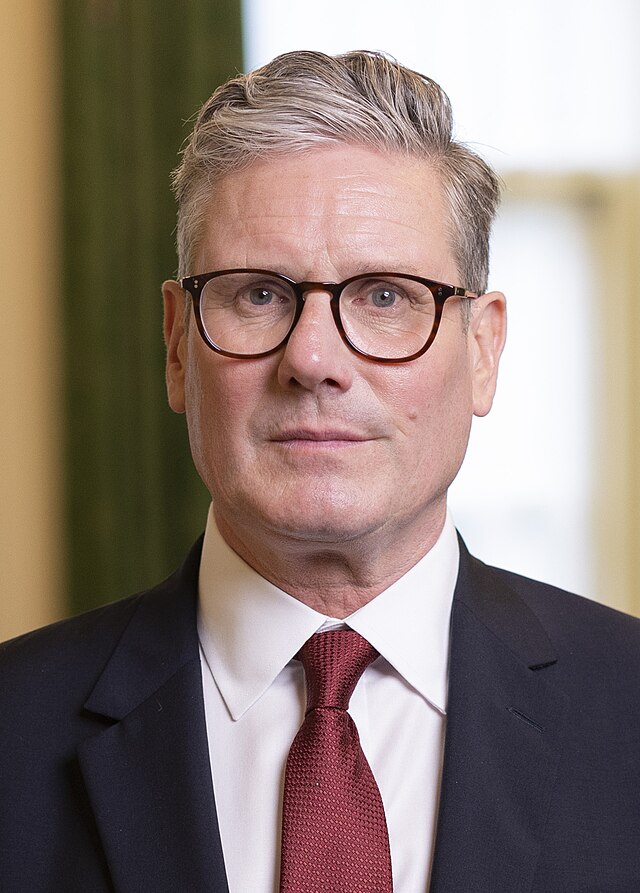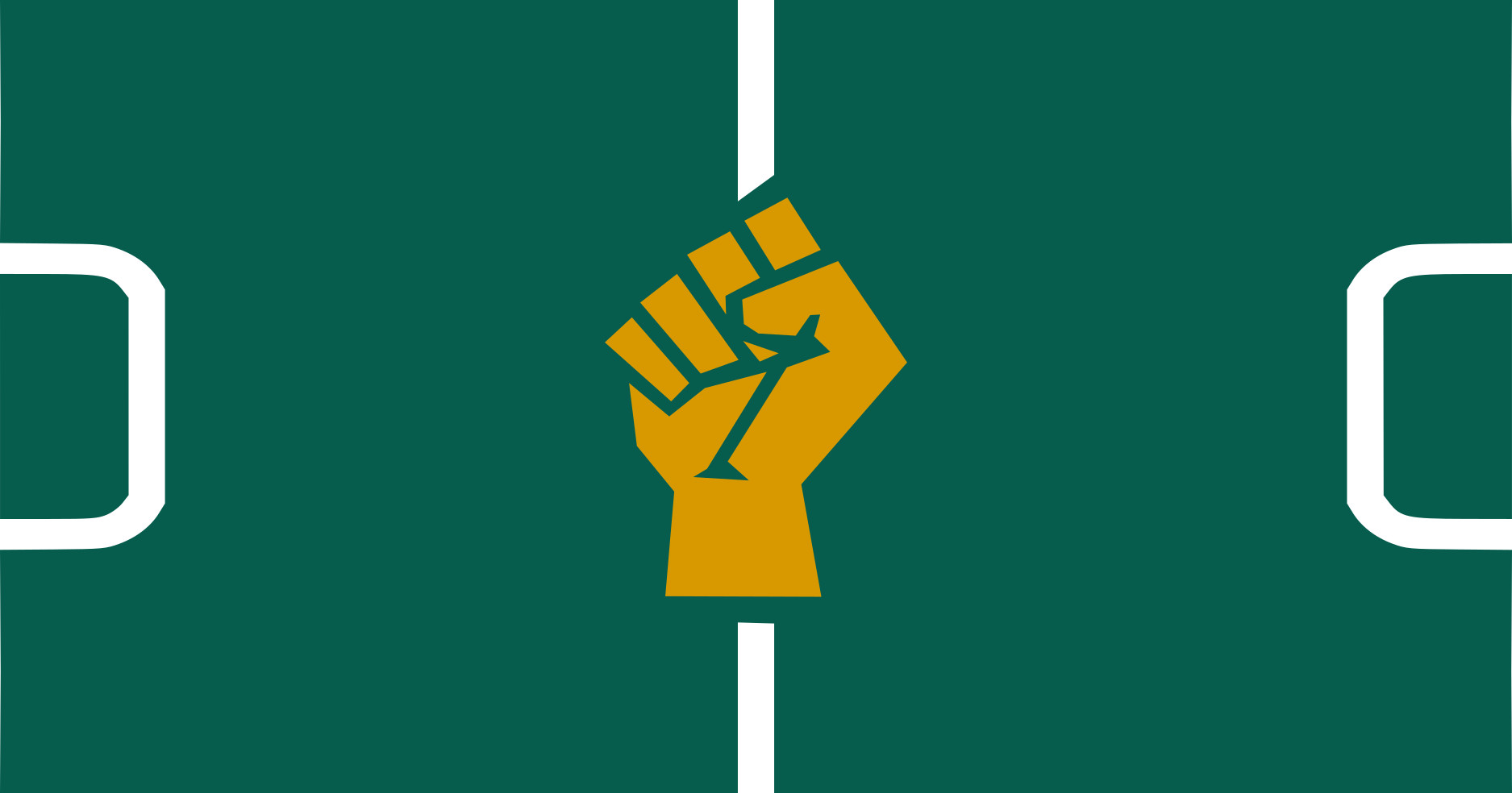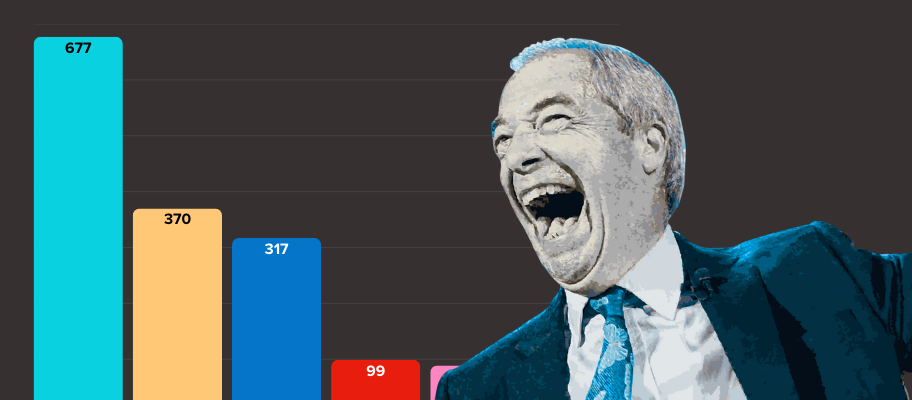I first came across the idea of a feminist toolkit in Sara Ahmed’s Living a Feminist Life. In her conclusion, she outlines what to include in a killjoy survival kit, including books, time, and other killjoys. In the conclusion, titled A Killjoy Survival Kit, Ahmed states “you need your favourite feminist books close to hand; your feminist books need to be handy. You need to take them with you: make them with you. Words can pick you up when you are down. And note: it is often books that name the problem that help us handle the problem. Kick-ass feminist books have a special agency, all of their own. I feel propelled by their kick.” (2017, p.240)
What follows is a list of feminist texts I think are essential to socialist organising and understanding of feminism, and that would be included as part of my feminist toolkit.

First is, of course, Ahmed’s text Living a Feminist Life. Within this text, Ahmed highlights how feminist theory is created in the everyday, by everyday women both at home and at work. Ahmed provides practical tools that can be used to address patriarchal problems. This text is essential to understanding how feminist theory is formed and used in practice. Ahmed asserts that “we are moved to become feminists in dialogue with others” (2017, p.5) and structures this book around the idea that feminist knowledge is created through our interactions with each other. For Ahmed, community is at the heart of feminist theory.

My next text is, honestly, anything by Angela Y. Davis. Her incredibly influential text Women, Race, and Class is essential to understanding the legacies of slavery in the US and how they affect the intersections of gender, race, and class. Davis is an outspoken communist and this is evident in all of her work. Davis concludes Women, Race, and Class with the emphasis that “Working women, therefore, have a special and vital interest in the struggle for socialism. Moreover, under capitalism, campaigns for jobs on an equal basis with men, combined with movements for institutions such as subsidized public child care, contain an explosive revolutionary potential. This strategy calls into question the validity of monopoly capitalism and must ultimately point in the direction of socialism” (1981, p.219). I highly recommend Davis’s work on prison abolition; Are Prisons Obsolete? and Abolition. Feminism. Now. The latter was co-authored with Gina Dent, Beth E. Richie, and Erica R. Meiners, and the former was one of our book club picks last year. And for a more personal touch, her autobiography details her experiences and her steadfast commitment to radical change.

My next recommendation is Feminism is For Everybody: Passionate Politics by bell hooks. This text provides an accessible and thought-provoking look at feminist theory and its intersections with race, class, and sexuality theory. hooks draws on her personal experience to discuss how a feminism created with everyone in mind will create a more fair, equal and inclusive society. hooks refers back to her definition of feminism as outlined in previous work, which is as follows “Feminism is a movement to end sexism, sexist exploitation, and oppression” (2000, p.viii). In the rest of the text hooks covers topics such as consciousness raising, feminist education, the feminist class struggle, and feminist parenting. I also recommend hooks’ text The Will to Change: Men, Masculinity, and Love which highlights the patriarchy’s effects on masculinity and how that, in turn, affects men’s lives and relationships. Though honestly, anything by bell hooks is worth a read.

Audre Lorde is an essential writer for thinking about feminism. Lorde self-described as ‘Black, lesbian, mother, warrior, poet’ and this perfectly sums up her work. Lorde’s work is bursting at the seams with both power and care showing that not only that the two can and do coexist but they are intimately connected. The Master’s Tools Will Never Dismantle the Master’s House is one of her most well-known works and for good reason. Initially given as a speech at a conference in this work Lorde calls for a reimagining of difference and denounces the conference organisers for their use of racist patriarchal tools against Lorde and other Black women in attendance. Of difference Lorde says, “As women, we have been taught either to ignore our differences, or to view them as causes for separation and separation rather than as forces for change. Without community there is no liberation, only the most vulnerable and temporary armistice between an individual and her oppression. But community must not mean a shedding of our differences, nor the pathetic pretense that these differences do not exist” (2018, p.18). Lorde’s poetry and essays are well worth a read as is her biomythography Zami, as all will leave you feeling passionate and driven to create change.

Françoise Vergès is an activist and educator writing from the perspectives of French feminism and decolonial feminism. Her book titled A Decolonial Feminism argues that feminists must take a step back and cut all ties with capitalism, racism, colonialism, and imperialism. Vergès calls for an intersectional socialist feminism to take down “the system that created the bosses, built the prisons and polices women’s bodies” (2021, blurb of book). One of Vergès other text’s that I’d like to recommend is A Feminist Theory of Violence where she denounces feminist over reliance on the police and state for protection. Vergès emphasises that in focusing on violence committed by men we fail to question the structural inequalities that may lead to their violence. I think this would be excellent to read alongside The Will to Change by bell hooks.

Revolting Prostitutes written by Molly Smith and Juno Mac details the fight for sex worker’s rights and evaluates the systems in various countries based on how much they actually suit sex worker’s needs. Smith and Mac delve into how sex work connects to topics like labour and borders before discussing the UK’s antiquated approach, the US, South Africa and Kenya’s criminalising approach and what is often touted as the solution, the Nordic model (spoiler, it is not the solution as it often causes quite a lot of harm in a number of ways such as evictions or deportation). I found Smith and Mac’s analysis of Aotearoa’s (New Zealand) Prostitution Reform Act of 2003 really intriguing, they maintain this act “is the closest we have come to ideal sex work laws” (2020, p.191) but argue that Aotearoa does not go far enough. In the conclusion they discuss their prerequisites for a fair approach to sex work, in particular they say “Nobody can build a better , more feminist world by treating sex workers’ current material needs— for income, for safety from eviction, for safety from immigration enforcement— as trivial” (Smith and Mac, 2020, p.209). Their solutions are largely built upon doing no harm and leaving no one behind.

The Transgender Issue by Shon Faye was our January 2024 book club pick. Faye outlines the struggles trans people face in terms of bodily autonomy, class struggle, sex work, and trans people’s relationship with feminism and the LGBTQ+ community. Faye combines academic work, with personal stories from herself and other trans people, the latter of which is feminist research in practice. Faye structures her argument around liberation stating that “The liberation of trans people would improve the lives of everyone in our society” (2022, p.xiii).

My final recommendation, for now, in my ever growing feminist toolkit, is Socialist Feminism by Frieda Afary. As the blurb on the back says “Afary brings the insights gained through her study of feminist philosophy, international activism and work as a public librarian in Los Angeles, offering a bold new vision of an alternative to capitalism, racism, sexism, heterosexism and alienation” (2022). Afary maintains that socialist feminism is the way out of authoritarian capitalism, she analyses the COVID-19 pandemic and the MeToo movement alongside contradictory developments in gender relations before delving into topics such as social reproduction, the alienation of labour, intersectionality, and queer theory.






